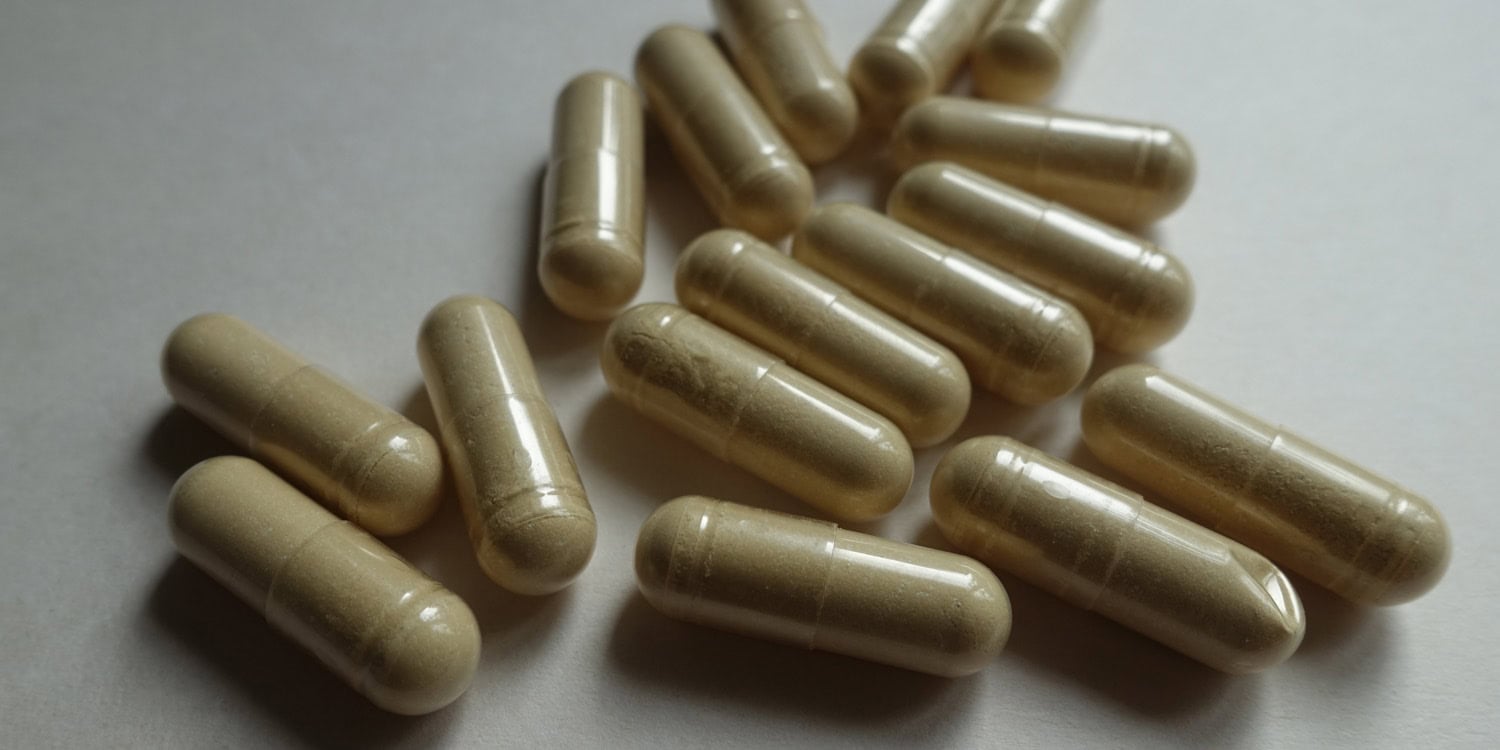Probiotic supplements may reduce negative emotions in healthy adults

A new study published in npj Mental Health Research suggests that taking probiotics can reduce negative mood in healthy adults—but only if you know where to look. While standard psychological questionnaires failed to detect meaningful changes, participants who tracked their emotional state each day showed a clear and consistent decline in negative feelings after taking probiotics for two weeks. The findings suggest that daily monitoring may offer a more sensitive way to measure subtle improvements in mood and could help resolve conflicting results from past probiotic studies.
The study was motivated by growing scientific interest in the “microbiome–gut–brain axis,” the idea that gut bacteria may influence mental health. While some evidence supports this connection, especially in people with clinical depression, research on healthy populations has produced mixed results. Probiotics—supplements containing live bacteria thought to benefit gut health—have been studied as a potential way to improve mental well-being, but findings have been inconsistent. This study aimed to clarify whether probiotics can influence emotion in healthy people and whether certain individuals might benefit more than others.
“The burgeoning field of the gut microbiome is revealing the numerous effects that bacteria in the gut may have on the brain and behaviour – and in the future this field may be able to offer novel solutions when it comes to treating mental health,” explained study author Katerina Johnson of Leiden University. “We know that the gut–brain connection provides various routes through which bacteria in the gut can influence how we feel and behave, including via the vagus nerve, immune system and hormones. So here we used a combination of methods to capture how probiotics might influence the ability to regulate our emotions and affect our mood.”
For their study, the researchers recruited 88 healthy adults and randomly assigned them to receive either a probiotic supplement or a placebo each day for four weeks. The study used a double-blind design, meaning neither the participants nor the researchers knew who received which treatment. The probiotic used in the study was a commercially available product containing nine bacterial strains commonly found in the human gut. Participants mixed the probiotic or placebo powder into lukewarm water and drank it once daily.
Unlike many previous studies, which relied solely on questionnaires administered before and after the intervention, this research included several types of measurements. Participants completed a wide range of psychological questionnaires both before and after the four-week period to assess traits such as anxiety, depression, stress, and emotional regulation. They also took part in cognitive tasks designed to measure how they processed emotional stimuli, such as identifying facial expressions or responding to emotionally charged images.
In addition to these standard assessments, participants were asked to report their mood and digestive symptoms each day using a smartphone link. Each day, they rated how positive and how negative they felt on a scale from 0 to 100, along with reporting on stool consistency. This daily tracking was a novel aspect of the study, providing much more detailed insight into changes in emotional state over time.
The main finding was that probiotics reduced negative mood in the probiotic group, and this effect became noticeable after two weeks of use. Participants who took the probiotic supplement consistently reported a gradual decline in negative feelings, such as sadness or irritability, compared to those who took the placebo. Interestingly, there was no change in reported positive feelings, suggesting that probiotics may specifically buffer against negative emotional states without affecting positive mood.
“Our research has promising implications in terms of the effect of probiotics on mood, although science still doesn’t have a good understanding of precisely how probiotics work and all the various effects they may have on our physiology,” Johnson told PsyPost. “More studies would have to be conducted first, but it’s possible that in the future probiotics could be used in a targeted way to help prevent low mood progressing to mental health conditions like depression.”
On the other hand, the more traditional psychological questionnaires did not detect significant differences between the two groups. In fact, in some cases, scores on measures like anxiety and stress improved more in the placebo group. However, these changes were small, and given the number of comparisons made, the authors caution against overinterpreting these findings. The questionnaires might simply not be sensitive enough to detect subtle emotional shifts in healthy individuals who are not experiencing clinical symptoms.
The researchers also examined whether certain traits made individuals more likely to benefit from probiotics. They found that people who scored higher on measures of risk aversion—a trait linked to vulnerability to depression—tended to show the largest reductions in negative mood. This suggests that even within a healthy population, some people may be more sensitive to the psychological effects of probiotics than others. If confirmed in future studies, this insight could help target probiotic interventions to those who are most likely to benefit.
“Another novel aspect of our research is that we then looked at whether we could predict who would best respond to probiotics based on their psychological traits,” Johnson said. “We found that various traits, particularly people who tended to be more risk averse, were the ones whose mood benefited most from taking probiotics. This is interesting because there is some evidence that people who are more risk avoidant may be more vulnerable to developing depression.”
The study did not find meaningful changes in cognitive processing of emotional information, such as recognizing facial expressions or shifting attention to emotional faces. This is notable because other research has suggested that probiotics can influence emotional processing at the cognitive level, especially in people with depression. The absence of such effects here may be due to the healthy status of the participants or the relatively short intervention period.
One of the most interesting aspects of the study is the comparison with antidepressants. The researchers noted that the mood improvements from probiotics began around two weeks into the intervention—the same time frame in which many people begin to feel the effects of antidepressants.
“The comparable timescales are an interesting aspect of our findings,” Johnson explained. “It may be a sign that both antidepressants and probiotics can affect our mood through shared pathways. “In fact we know that both can signal to the brain via the vagus nerve (the main nerve connecting the gut and brain) and also that they both have anti-inflammatory effects.”
The authors also emphasize that their study helps explain why past research on probiotics has yielded conflicting results. Many studies use only pre- and post-treatment questionnaires, which may overlook important changes that develop gradually over time.
“It’s particularly notable that by tracking how people felt on a daily basis, we could detect the beneficial effects of probiotics on mood, whereas the standard psychological questionnaires that are commonly used in the field weren’t sensitive enough to pick up these changes,” Johnsonnoted. “By monitoring people daily, rather than just assessing them before and after, it gives us much better resolution of changes over time when taking probiotics.”
“This is the first study to implement daily mood monitoring to assess the effects of probiotics and in fact, by the end of the month-long study, their negative mood still appears to be improving. One disadvantage with psychological questionnaires is that they attempt to dissect how people are feeling into discrete categories e.g. stress, anger, anxiety or depressive tendencies. In contrast, asking how positive or negative someone is feeling can holistically capture a change in any emotional state.”
Despite the promising findings, the study has some limitations. The participants were healthy young adults, so the results may not apply to older individuals or those with clinical conditions. The sample size, while adequate for detecting medium effects, may not capture smaller differences. Also, the daily mood ratings were based on simple questions rather than validated clinical measures. However, the researchers argue that this simplicity might be a strength, capturing subjective emotional experience more directly than structured questionnaires.
The study opens several avenues for future research. Longer intervention periods might reveal larger or more lasting effects, especially since mood improvements were still increasing at the end of the four-week study. Future studies could also compare different probiotic formulations, explore the role of diet, or use biological markers to track changes in inflammation or gut bacteria.
“Although this study was using probiotic supplements, it’s relevant to note that there are natural sources of probiotics in our diet (e.g. fermented cheese, sauerkraut, kimchi) and also prebiotic fiber which helps promote the growth of beneficial gut bacteria and is found in various foods (e.g. bananas, legumes, whole grains),” Johnson explained. “In fact, some of my other research on the human microbiome found that eating naturally occurring sources of probiotics and prebiotics was linked to a more diverse microbiome, typically a marker of a healthy gut.”
The study, “Probiotics reduce negative mood over time: the value of daily self-reports in detecting effects,” was authored by Katerina V.-A. Johnson and Laura Steenbergen.
link


:max_bytes(150000):strip_icc()/GettyImages-2003516733-260b2a8097d74c5f9c2b4a45670bc511.jpg)

